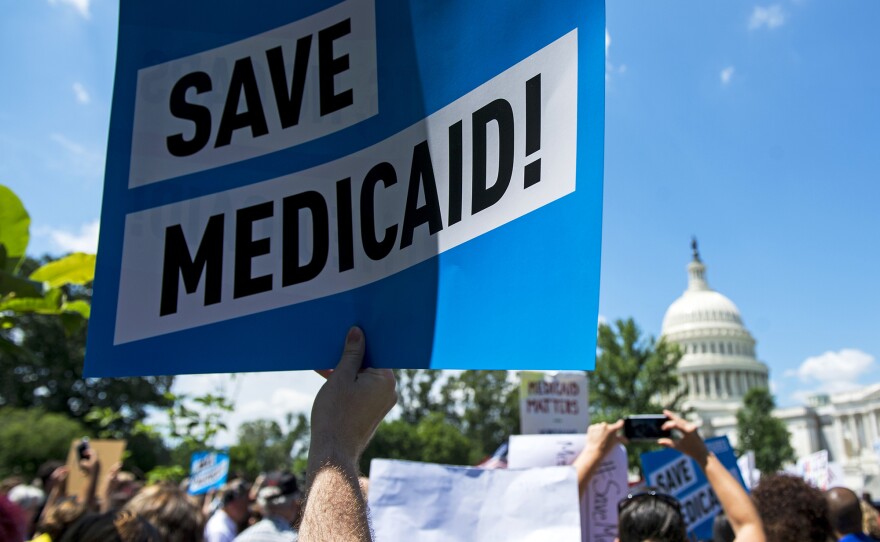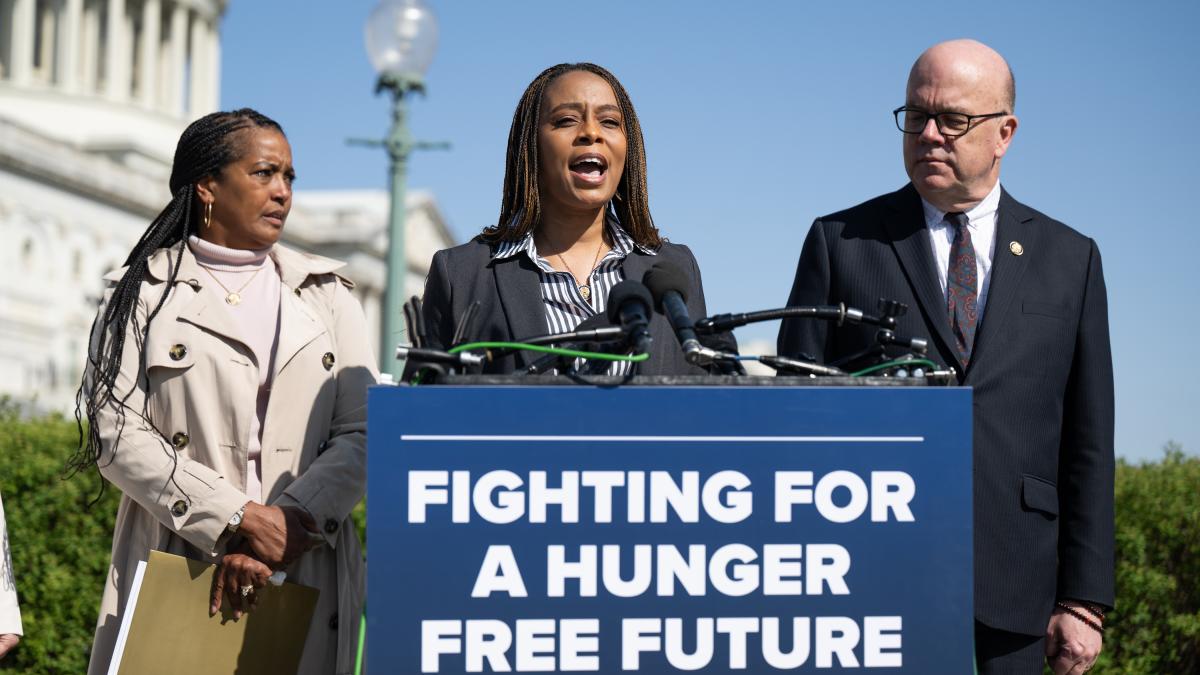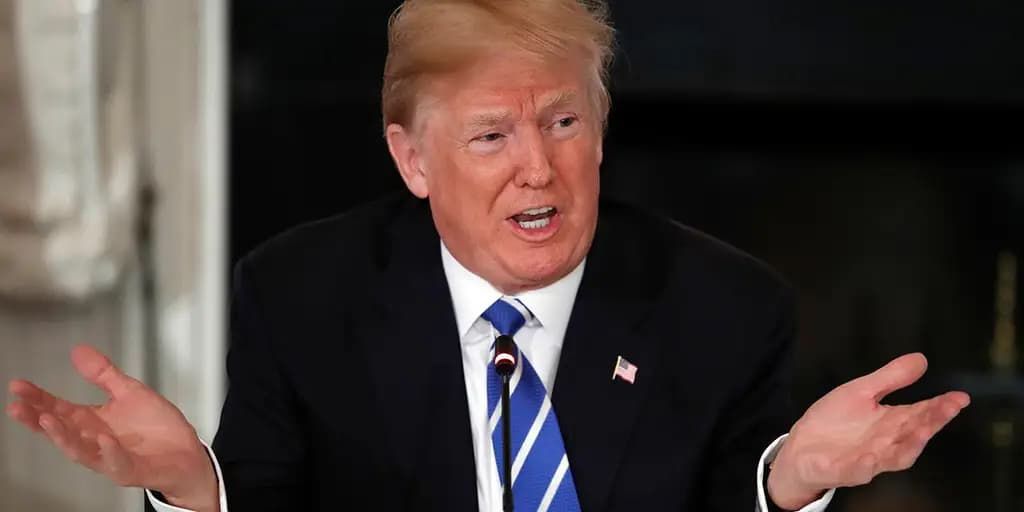The Trump administration is pushing a brutal budget plan that threatens the livelihoods of millions of Americans. Proposed cuts totaling over $1.4 trillion to Medicaid and food assistance programs will disproportionately harm those earning under $50,000 a year, while the wealthiest households stand to gain significantly. This stark reversal of campaign promises reveals the administration"s true priorities, favoring the rich at the expense of the vulnerable.
Proposed Cuts Target Low-Income Americans
In June, care workers rallied against the anticipated cuts to essential programs like Medicaid and SNAP (Supplemental Nutrition Assistance Program). These cuts, which will total nearly $290 billion according to the Center on Budget and Policy Priorities, will devastate the lives of over 30% of Americans who rely on these safety nets to survive. The House bill alone is expected to result in an average income loss of $1,600 for the lowest-earning households, while the top 10% will see a staggering increase of $12,000 in net income.
Tax Cuts Favor Wealthy Households
As reported by the Congressional Budget Office, the tax provisions of this budget bill reveal a stark reality: the wealthiest Americans are set to receive 44% of the total tax cuts. Meanwhile, the poorest 20% will get a mere 1%. This inequity is underlined by the fact that households in the top 0.1% will benefit from an average tax cut of $103,500. Such policies represent an egregious shift of resources from the needy to the affluent, directly contradicting Trump"s claim to represent the working class.
\n\n
Meet Your Friends Who Get Medicaid | KPBS Public Media
Impact on Health Coverage and Food Security
The ramifications of these cuts are dire. Experts like Jeanne Lambrew from the Century Foundation estimate that at least 16 million Americans could lose their health coverage, which would push the number of uninsured individuals to nearly 45 million nationwide. This drastic increase in the uninsured population will have long-lasting effects on public health, leading to increased medical debt and preventable health crises.
Moreover, the proposed reduction in SNAP benefits will leave approximately 7 million people, including 2 million children, without essential food assistance. This is particularly alarming given that food insecurity rates have already risen in recent years, and a significant increase in hunger and poverty is on the horizon.
Environmental Justice at Risk
The budget plan also threatens to undo many of the advancements made in clean energy and environmental policy. Cuts to renewable energy initiatives could jeopardize hundreds of thousands of jobs in emerging industries, disproportionately affecting blue-collar workers. The elimination of the Low-Income Home Energy Assistance Program could leave millions without the means to stay warm in winter, a matter of life and death for vulnerable families struggling to make ends meet.
As Chuck Marr, vice-president for federal tax policy at the Center for Budget and Policy Priorities, pointed out, “This bill is a major shift. They’re taking away from poor people and working-class people and channeling it to very high-income people.” The ramifications of these cuts are not just economic; they are deeply intertwined with issues of environmental justice, as low-income communities often bear the brunt of climate change impacts.
\n\n
Congresswoman Brown Introduces Bill Blocking Republican Plan ...
Public Opposition and Calls for Justice
Despite the administration"s claims that these cuts are necessary to combat "fraud, waste, and abuse", the reality is that only 3.5% of the proposed Medicaid cuts stem from such issues, according to Lambrew. The overwhelming majority of cuts will simply strip away essential services for those who need them most. Public opposition to this budget is palpable, with polls indicating that nearly 53% of registered voters oppose the GOP plan, reflecting a widespread recognition of its injustices.
Archbishop Timothy Broglio"s letter to Congress emphasizes the moral imperative to protect the common good and address wealth inequality, a sentiment echoed by many advocating for social justice and environmental equity. The need for a budget that promotes equity, sustainability, and the welfare of all Americans is more critical than ever as the nation grapples with these impending cuts.

![[Video] Anti-ICE Protester Pepper Sprayed as CBP Agents Disperse Crowd in Minneapolis](/_next/image?url=%2Fapi%2Fimage%2Fthumbnails%2Fthumbnail-1768260677127-y71sb7-thumbnail.jpg&w=3840&q=75)

![[Video] Several injured as U-Haul truck drives through Iranian protestors in Los Angeles](/_next/image?url=%2Fapi%2Fimage%2Fthumbnails%2Fthumbnail-1768176682028-q95y6j-thumbnail.jpg&w=3840&q=75)
![[Video] Scuffle breaks out between Trump supporters and Anti-ICE protesters in Times Square](/_next/image?url=%2Fapi%2Fimage%2Fthumbnails%2Fthumbnail-1768165958203-hgcgb-thumbnail.jpg&w=3840&q=75)


![[Video] Gunfire between Iraqi security forces and Sadr militias in Baghdad](/_next/image?url=%2Fapi%2Fimage%2Fthumbnails%2Fthumbnail-1768343508874-4redb-thumbnail.jpg&w=3840&q=75)
